
smartboy10/Getty Images
My dear beleaguered friends—the wait is almost over. The day we’ve been counting down to — and counting on — for the past two years is almost here. Woohoo! Midterm Elections! Our long(ish) national nightmare is about to end!
As I write this, I’m sure many of you blue-minded folks are already chilling the bubbly and planning your impeachment parties, or at least celebrating the imminent release of those long-awaited Trump Tax Returns, now that we will have at last the congressional leadership and authority to force those long-overdue events. You can almost taste the Blue in the air it’s so thick!
But…here’s the thing: What if we’re wrong — again?
Don’t say it can’t happen. It did, in 2016, when we, in our confidence (or perhaps naïvete), were blindsided by an election result many of us thought utterly impossible (many of us still do, two years later).
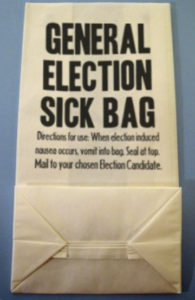 Do you remember that sick feeling all over your body, the morning after? Maybe you wept. Maybe you vomited. Maybe you took to your bed. Maybe you drank. Maybe you did all of the above. Or maybe you were one of the stronger ones, and you kept your head and took out your angst and fear and disgust right away those first few days, or even hours, kicking your activism and resistance into high gear, doing everything you could to protect those who, it was obvious, would soon be active targets of their new president. Maybe you did all of that.
Do you remember that sick feeling all over your body, the morning after? Maybe you wept. Maybe you vomited. Maybe you took to your bed. Maybe you drank. Maybe you did all of the above. Or maybe you were one of the stronger ones, and you kept your head and took out your angst and fear and disgust right away those first few days, or even hours, kicking your activism and resistance into high gear, doing everything you could to protect those who, it was obvious, would soon be active targets of their new president. Maybe you did all of that.
[A side note to those of you reading this who thought two years ago that the rest of us were being a bit hysterical, overwrought, maybe overly dramatic, but who have since come to see the dangers inherent in this man’s administration: I’d just like to say welcome to the fight. We wish you’d listened sooner to our fears, but we’re glad to have you by our side now. Welcome, and thank you for joining us. We look forward to working with you.]
I’ve been deeply moved and inspired these last two awful years by the resurgence of activism and civic engagement we are seeing in America. At every stage of this vile game the GOP has been playing, we’ve seen individuals, small business owners, federal judges, large corporations, valiant members of the press, and leaders from around the world stand up to policies this administration has tried to impose and say, “No. We will not let this stand.” Some of our finest moments as human beings, we know, come from some of our darkest hours, and we have definitely seen that playing out.
Sadly, at the same time, we’ve also seen a corresponding resurgence of hatred, intolerance, and bigotry — not to mention horrific violence — rising up out of this rot like a crop of foul, poisonous fungi. But at every turn, courageous, compassionate people of deep integrity have continued to step up to try to stop its nasty growth. For that, and to all of you who have done so, I am profoundly grateful. This is the America I envision whenever someone says, “We are better than this.” That’s the America I see, full of good people standing shoulder to shoulder, united in doing the right thing for our country.
 It’s been so encouraging to me these last few months, watching how we’ve engaged voters into action this midterm election. I’m optimistic: I felt the mood at my local polling place when I went in for early voting. Folks seemed energized, happy, and lighthearted, in a way I thought we’d forgotten to feel about elections. I’ve seen posts from friends all over the country, sharing their joy at early and absentee voting and photos and descriptions of the long lines of motivated people ready to say ENOUGH IS ENOUGH. Yes, I’m hopeful.
It’s been so encouraging to me these last few months, watching how we’ve engaged voters into action this midterm election. I’m optimistic: I felt the mood at my local polling place when I went in for early voting. Folks seemed energized, happy, and lighthearted, in a way I thought we’d forgotten to feel about elections. I’ve seen posts from friends all over the country, sharing their joy at early and absentee voting and photos and descriptions of the long lines of motivated people ready to say ENOUGH IS ENOUGH. Yes, I’m hopeful.
But you’ve heard that old adage, “Fool me once, shame on you; fool me twice, shame on me.” We were fooled once, weren’t we? Fooled into thinking that America is “better than this.” It’s not. It never has been, in all our long history. We thought it was for a while there, but it wasn’t. Racism, deep political corruption, misogyny, bigotry, and intolerance were alive and well this whole time. They’d only gone silent, slunk back under the slimy rocks and rot where they belong, while we spent years complacently believing that Good had finally triumphed over Evil.
Many of Trump’s true enablers, his most complicit supporters, were silent when they voted in 2016 for the leader who would give them a bullhorn, a platform, and clear marching orders, and they surprised many of us on Election Day. Some of those same enablers are silent still, and they are the ones I fear, not the loudmouth bullies at the rallies (although to be honest, they scare the crap out of me, too, but on a different level). I fear those who are still silently casting their votes, perhaps at this very moment, choosing to continue their support of this increasingly terrifying administration. Yes, they were silent in 2016; they could still be silent, and in that silence, they could easily be fooling us again.
Another concern: the meddling in our election systems by a foreign government also fooled us. Hacks, social media influencing campaigns, these have been called out by every one of our intelligence and national security agencies, and yet, nothing has been done to protect our election integrity. Nothing.
And there’s more: voter suppression is still happening in multiple states around the country. Georgia and North Dakota are two of the most egregious of these examples, but you can find appalling initiatives in many, many places. Hundreds of thousands of U.S. citizens around the country stand to be denied their right to vote, and our only option for redress (outside of the ACLU and a courageous contingent of federal and state judges who continue to fight for voters’ rights) is our current government, which at best, turns a blind eye to these issues, and at worst, enables them to proceed apace, because it benefits THEM.
I know, I’m Debbie Downer today. Maybe it’s the weather — super rainy here, which it’s also supposed to be tomorrow, Election Day, for much of the East Coast (that affects voter turnout, too). Maybe it’s just that it’s the last mile of this two-year marathon, and I’m feeling tired, as though I will never see that finish line. It happens.
But my friends — the thing I want to convey here is not that I’m tired or that things look bleak (though I am, and, in spite of my optimism, they do). It’s that we need to prepare ourselves for Wednesday, November 7, no matter what the outcome, and that means preparing ourselves for the possibility that the vaunted blue wave doesn’t happen this time around.
Don’t mistake this for hopelessness; I actually feel quite hopeful: Early voting turnout is up. Enthusiasm is up. First-time registrations are up. Young voters are mobilizing. We must believe, with every bit of our hope and determination, that these are signs of a coming victory, that we will soon be able to put a stop to this insanity. We have to have hope, friends, or we perish, and then our democracy dies with us. So yes, by all means, hope, chill the bubbly, and plan your parties.
But — because I remember the shock, the sickness, the depression, and the fear of the Day After in 2016, and I imagine you do, too, I want you to prepare just as thoroughly for a different outcome.
We are facing formidable odds. A deeply entrenched, hostile, corrupt, and self-serving faction has taken hold of this country’s leadership. They have gamed our electoral systems with diabolical skill. Foreign governments are intruding in those systems with little to no opposition (if not open encouragement) from said leadership, and voter suppression tactics are on full display around the country to disenfranchise the very voters who not only would be most harmed by the continued authority of our current leadership, but who also would, as a voting bloc, be most likely to vote them out of office.
Knowing that, it is entirely conceivable that, even with a blue tsunami, those factors I’ve just listed may combine to produce results that will shock, sicken, and terrify those people of faith and good will who thought all they needed to do to stop this was vote.
So prepare for that possibility, too, my friends, just as hard as you’re hoping and preparing for victory. Schedule time with a like-minded friend for lunch or coffee. Indulge in a little fantasy reading about the end of the Trump presidency from the New York Times Book Review. Make an appointment with your therapist. Plan to go for a walk. Visit your place of worship. Get a massage. Arrange to volunteer at a homeless shelter, your child’s school, or a food pantry. Pet your dog or your cat — put some self-care plans in place ahead of time, in case you need them.
But I would also like to propose another method of self-care, should this election not go the way we want it to. Imagine if the GOP wins Tuesday. That victory will send a message to them that they can now do pretty much anything they want to (not that they didn’t already feel that way, but a victory would only embolden them even further, because it would give them the impression of a national mandate, which we all know they could only achieve by cheating and is precisely why they’re working so hard to do just that in so many places).
So GOP midterm victory (sorry to keep repeating it; think of it as shock-innoculation) — the only chance we will have at that point until 2020 to save our country is how hard we are willing to fight on behalf of all those whom that victory will actively harm. Just imagine then, if the Day After this time around saw massive increases in donations to organizations like CASA or CAIR or AJC or The Trevor Project or Black Lives Matter or the ACLU or GLAAD or the Wounded Warrior Project or the NAACP or Planned Parenthood or NOW or the NEA (both education and the arts) or the Sierra Club or the World Wildlife Fund or Everytown for Gun Safety or, or, or — add your own!
Such a mass movement would serve three purposes: 1.) It would provide an instant boost of support for those organizations on the frontlines who protect and advocate for all of the things a continued GOP administration would target; 2.) It would send a crystal-clear message of support to all of those affected folks that they are not alone and that this fight is JUST GODDAMNED BEGINNING; and 3.) It would put the GOP on notice that we’re coming for them in 2020, we’ll be fighting even harder then, and that we will not rest in defending those whom they would harm with their hate-filled, intolerant, short-sighted, and bigoted policies. They provide the poison; we provide the antidote. Just imagine. Ahhhh, doesn’t that feel good?
Now, I want you to imagine something else.
I want you to imagine that we do, in fact, have a blue tsunami Tuesday that fulfills our wildest hopes and dreams. Do it! Picture it! Imagine waking up that glorious morning and knowing that decent, compassionate, country-over-party men and women of integrity and honor are now in control, and we can finally get back to the America we know we are…
Um…that’s still a problem. Because the America we now know we are? It’s in pretty bad shape, booming economy not withstanding (nor being the only indicator of whether a country is “great” or not, FYI). Winning the election on Tuesday? That’s only the beginning of the work ahead of us. If these last two years have taught us anything, it’s that many of us, particularly those of privilege, have been pretty ignorant, complacent, and incredibly naïve in our perceptions of American greatness. It’s been a myth too many people have believed for too long.
So even if we win every single race Tuesday, and we have the bluest of blue governments, ready to take everything back to the way it was, we should resist that temptation, because the way it was, was only an illusion held by a bunch of dreamers and idealists. We can still dream, we can still hold ideals, and we must, but starting right now, we all need to actually start doing our part to make those ideals and dreams a reality for all Americans, not just the few, the powerful, and the wealthy.
We can’t accomplish this goal by taking a potential victory on Tuesday and making it all about vengeance, either, making it all about punishing those who brought us to this crisis point (although, if there’s a God in heaven, at some point, there will be some of that). We need to make our victory about doing the right thing now for all Americans. And yes, while that includes allowing our justice system to investigate fully and seek the appropriate penalties for wrongdoing by our current leadership (including the president himself, if the investigation goes there, which I believe it will) vengeance and retribution (as we’ve witnessed the last two years) do not provide a sound foundation for effective governance. We cannot make those our sole focus.
So even if we win, and even if we get our fondest wish, and see justice served on those the law finds guilty, I’d still urge you to look up and get involved with those organizations on the front lines, protecting and advocating on behalf of our most vulnerable populations: people of color; women; immigrants; children; the elderly; the poor; our veterans; the LGBTQ community; those without access to quality education; those lacking adequate healthcare. There are too many Americans our government and our society are failing every day. Victory Tuesday will not change the challenges we face; they were there before 2016, and they will be there on November 7. What are we going to do about it?
It’s great that you voted (I mean, I hope you did; but if you didn’t this time around, maybe consider registering now for 2020, so you’re ready; I’ll try to forgive you by then). But your vote, while vital, is not the only way you can help save our country. Win or lose this Tuesday, our country will still be in need of saving. She could never have fallen so low if she hadn’t already been vulnerable, weakened by years of complacency, intolerance, and vitriolic partisanship. It’s time for us all to step up and act like the Americans we know we can be, not the Americans we’ve been. That’s going to require hands-on involvement, from your vote to your time to your money. Step it up.
 I hope with all my heart, my friends, that we’re popping bubbly for blue on Tuesday, but even more so, I hope that no matter the outcome, we’re preparing ourselves for the rest of the fight to come, and more importantly, thinking of ways we can take care of each other, too. Tuesday is only the beginning. Go vote.
I hope with all my heart, my friends, that we’re popping bubbly for blue on Tuesday, but even more so, I hope that no matter the outcome, we’re preparing ourselves for the rest of the fight to come, and more importantly, thinking of ways we can take care of each other, too. Tuesday is only the beginning. Go vote.
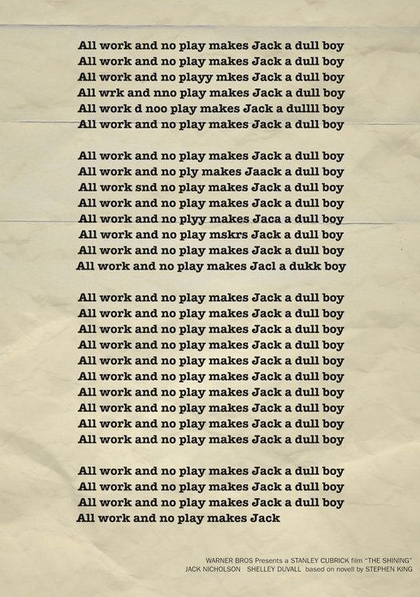





 Do you remember that sick feeling all over your body, the morning after? Maybe you wept. Maybe you vomited. Maybe you took to your bed. Maybe you drank. Maybe you did all of the above. Or maybe you were one of the stronger ones, and you kept your head and took out your angst and fear and disgust right away those first few days, or even hours, kicking your activism and resistance into high gear, doing everything you could to protect those who, it was obvious, would soon be active targets of their new president. Maybe you did all of that.
Do you remember that sick feeling all over your body, the morning after? Maybe you wept. Maybe you vomited. Maybe you took to your bed. Maybe you drank. Maybe you did all of the above. Or maybe you were one of the stronger ones, and you kept your head and took out your angst and fear and disgust right away those first few days, or even hours, kicking your activism and resistance into high gear, doing everything you could to protect those who, it was obvious, would soon be active targets of their new president. Maybe you did all of that. It’s been so encouraging to me these last few months, watching how we’ve engaged voters into action this midterm election. I’m optimistic: I felt the mood at my local polling place when I went in for early voting. Folks seemed energized, happy, and lighthearted, in a way I thought we’d forgotten to feel about elections. I’ve seen posts from friends all over the country, sharing their joy at early and absentee voting and photos and descriptions of the long lines of motivated people ready to say ENOUGH IS ENOUGH. Yes, I’m hopeful.
It’s been so encouraging to me these last few months, watching how we’ve engaged voters into action this midterm election. I’m optimistic: I felt the mood at my local polling place when I went in for early voting. Folks seemed energized, happy, and lighthearted, in a way I thought we’d forgotten to feel about elections. I’ve seen posts from friends all over the country, sharing their joy at early and absentee voting and photos and descriptions of the long lines of motivated people ready to say ENOUGH IS ENOUGH. Yes, I’m hopeful. I hope with all my heart, my friends, that we’re popping bubbly for blue on Tuesday, but even more so, I hope that no matter the outcome, we’re preparing ourselves for the rest of the fight to come, and more importantly, thinking of ways we can take care of each other, too. Tuesday is only the beginning. Go vote.
I hope with all my heart, my friends, that we’re popping bubbly for blue on Tuesday, but even more so, I hope that no matter the outcome, we’re preparing ourselves for the rest of the fight to come, and more importantly, thinking of ways we can take care of each other, too. Tuesday is only the beginning. Go vote.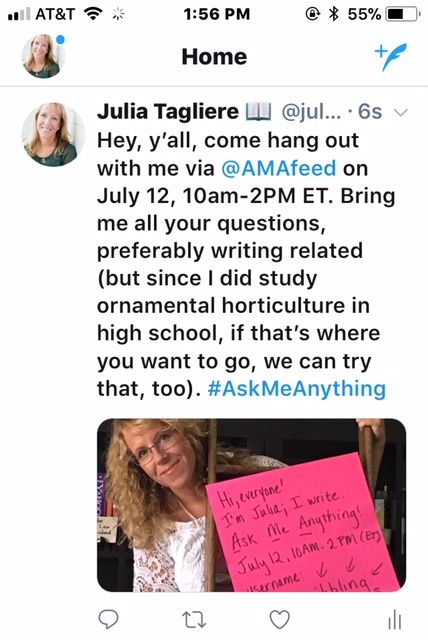 For what it’s worth, I was invited to do an AMA (Ask Me Anything) back in July;
For what it’s worth, I was invited to do an AMA (Ask Me Anything) back in July; 


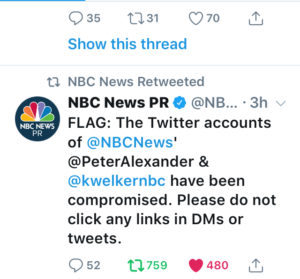
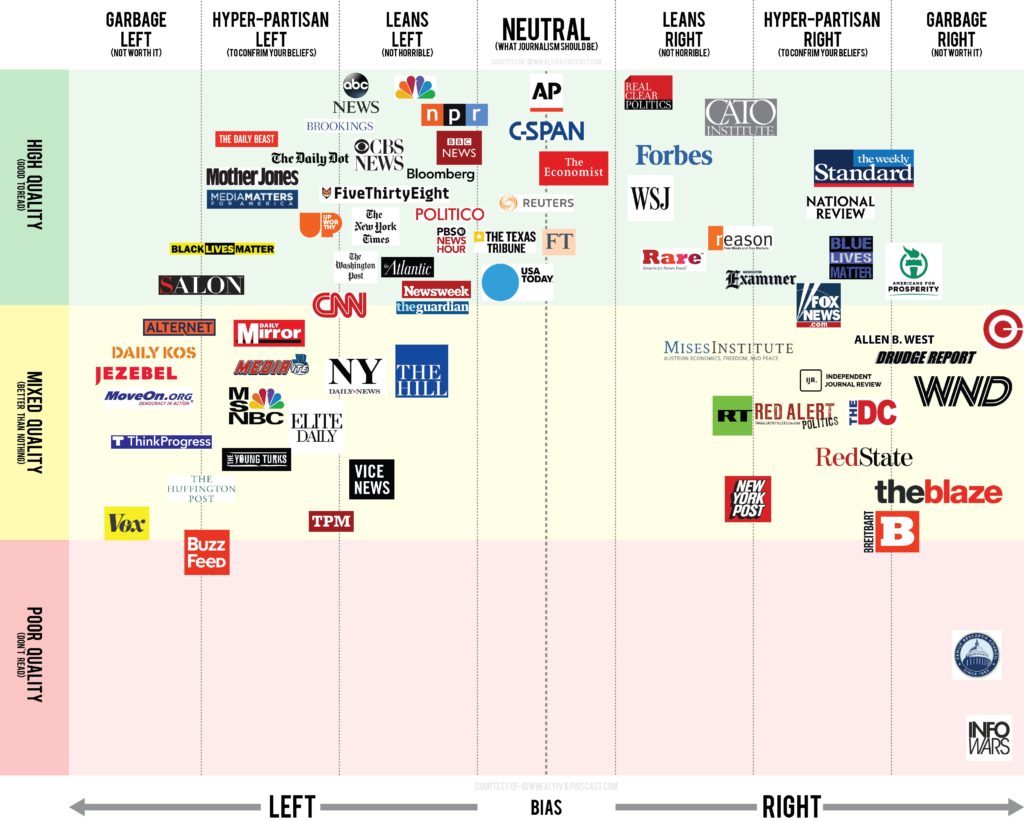
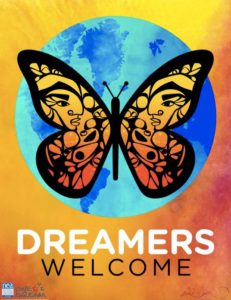 Maybe it’s because I used to be a high-school foreign language teacher, and so have a fondness for attempting to open closed minds, especially on the subject of those who speak a native tongue other than English; maybe it’s because I have an over-developed sense of fairness; maybe I’m just tired of arguing with people who continue to confuse the DACA program (“Dreamers”) with their fears of a horde of illegal immigrants taking advantage of our government systems so they can bring an endless wave of rape, destruction, pillaging, and anarchy to our poor, hapless country–whatever the reason, when I can’t stop thinking about it, the only thing I can do is write about it.
Maybe it’s because I used to be a high-school foreign language teacher, and so have a fondness for attempting to open closed minds, especially on the subject of those who speak a native tongue other than English; maybe it’s because I have an over-developed sense of fairness; maybe I’m just tired of arguing with people who continue to confuse the DACA program (“Dreamers”) with their fears of a horde of illegal immigrants taking advantage of our government systems so they can bring an endless wave of rape, destruction, pillaging, and anarchy to our poor, hapless country–whatever the reason, when I can’t stop thinking about it, the only thing I can do is write about it.